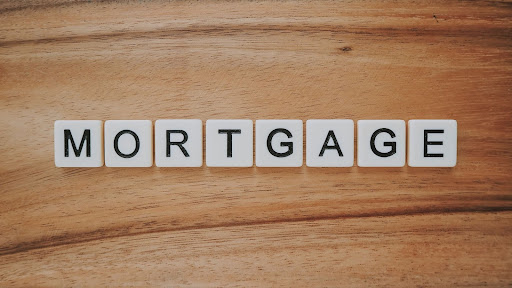
Inflation is something that all of us are worried about as it affects every individual, not only in the long run but in daily life as well. Whether we realize it or not, inflation plays a considerable role in how our lives function. It can also play a massive role in your mortgage payment, which is why it’s essential to understand the relationship between inflation and mortgage rates. The blog ahead discusses the details of inflation and mortgage rates and how both factors are interconnected.
What is Inflation?
Inflation is an economic concept that refers to the overall increase in prices for goods and services in an economy. In other words, the rate at which the cost of living is rising. When inflation is high, each currency unit buys fewer goods and services as prices have increased.
Several factors can contribute to inflation, such as an increase in the money supply, a decrease in the supply of goods and services, or an increase in government spending. When the money supply increases, it can lead to more demand for goods and services, which can, in turn, drive up prices. A decrease in the supply of goods and services can also cause inflation, as businesses raise prices to cover their costs. And finally, if the government is spending more money than it’s taking in through taxes, that can also lead to inflation.
Inflation can have both positive and negative effects on an economy. On the one hand, it can lead to higher wages and more money in circulation, which can spur economic growth. On the other hand, it can also lead to higher interest rates, which can discourage investment and slow economic growth. Inflation can be a difficult concept to wrap your head around, but it’s an important one to understand. It can have a significant impact on your finances, so it’s worth taking the time to learn about.
What is The Mortgage Rate?
A mortgage rate is the rate of interest charged on a mortgage. It can be either fixed, meaning it will remain the same for the term of the mortgage, or variable, meaning it will fluctuate with the market. Mortgage rates are determined by many factors, including the lender, the type of mortgage, the term of the mortgage, and the borrower’s credit history.
Relation Between Inflation And Mortgage Rates
Inflation and mortgage rates are interconnected because when inflation goes up, so do mortgage rates. This is because when inflation goes up, so does the cost of borrowing money. When the cost of borrowing money goes up, so do mortgage rates. This is because lenders need to charge higher interest rates to make up for the fact that the money they lend will be worth less in the future due to inflation. When inflation is low, mortgage rates tend to be low as well. This is because lenders can afford to charge lower interest rates when the money they lend will be worth more in the future.
Effects of Inflation on Mortgage Rates
Inflation is a huge problem in today’s world. When inflation is high, your dollar is worth less than it was the day before. So what does this mean for you as a homeowner? Here is some way through which mortgage rates get affected by inflationary rises.
Raised Rates by FED
Inflation does have a direct impact on mortgage rates. When inflation is high, mortgage rates tend to rise as well. This is because lenders want to protect themselves from the effects of inflation. When the FED raises rates, it’s usually in response to inflationary pressures. This means that higher mortgage rates are a direct result of inflation.
Inflation can also have an indirect impact on mortgage rates. When the economy is strong, and inflation is high, demand for mortgages is also high. This can lead to higher mortgage rates even if the FED doesn’t raise rates. Overall, inflation has a significant impact on mortgage rates. If you’re considering buying a home, it’s essential to keep an eye on inflationary trends.
Higher Rates Requested by Investors
Mortgage rates have been rising in recent months as investors have demanded higher returns in the face of rising inflation. The relationship between inflation and mortgage rates is complicated, but in general, as inflationary pressures increase, so do mortgage rates. This is because investors require a higher rate of return on their investments to offset the effects of inflation. For homebuyers, this means that the borrowing cost will likely continue to rise in the coming months. While this may pressure some households, it is essential to remember that mortgage rates are still relatively low by historical standards.
This is because inflation erodes the purchasing power of money, so investors require a higher rate of return to compensate for this. As a result, higher inflation usually leads to higher mortgage rates.
Effect of Inflation on Mortgage Rates Through The Year-End
Inflation is one of the critical drivers of mortgage rates, and it is expected to rise in 2022. This will also cause mortgage rates to rise, making it more difficult for borrowers to afford a home loan. Inflation will also make it harder for homeowners to refinance their mortgage at a lower rate, as rates will rise overall. This could lead to more foreclosures as borrowers struggle to keep up with their payments.
Mortgage rates are unpredictable, making people stressed about their loans, and increased inflationary rates tend to add to this chaos. Nevertheless, having adequate knowledge about legal matters and how you can save your house in such challenging times is an important thing to consider. With the specialist attorney team of Vilt Law P.C., you can secure your home despite the volatility. Contact us now!

